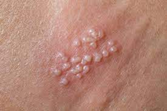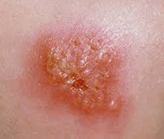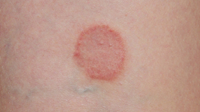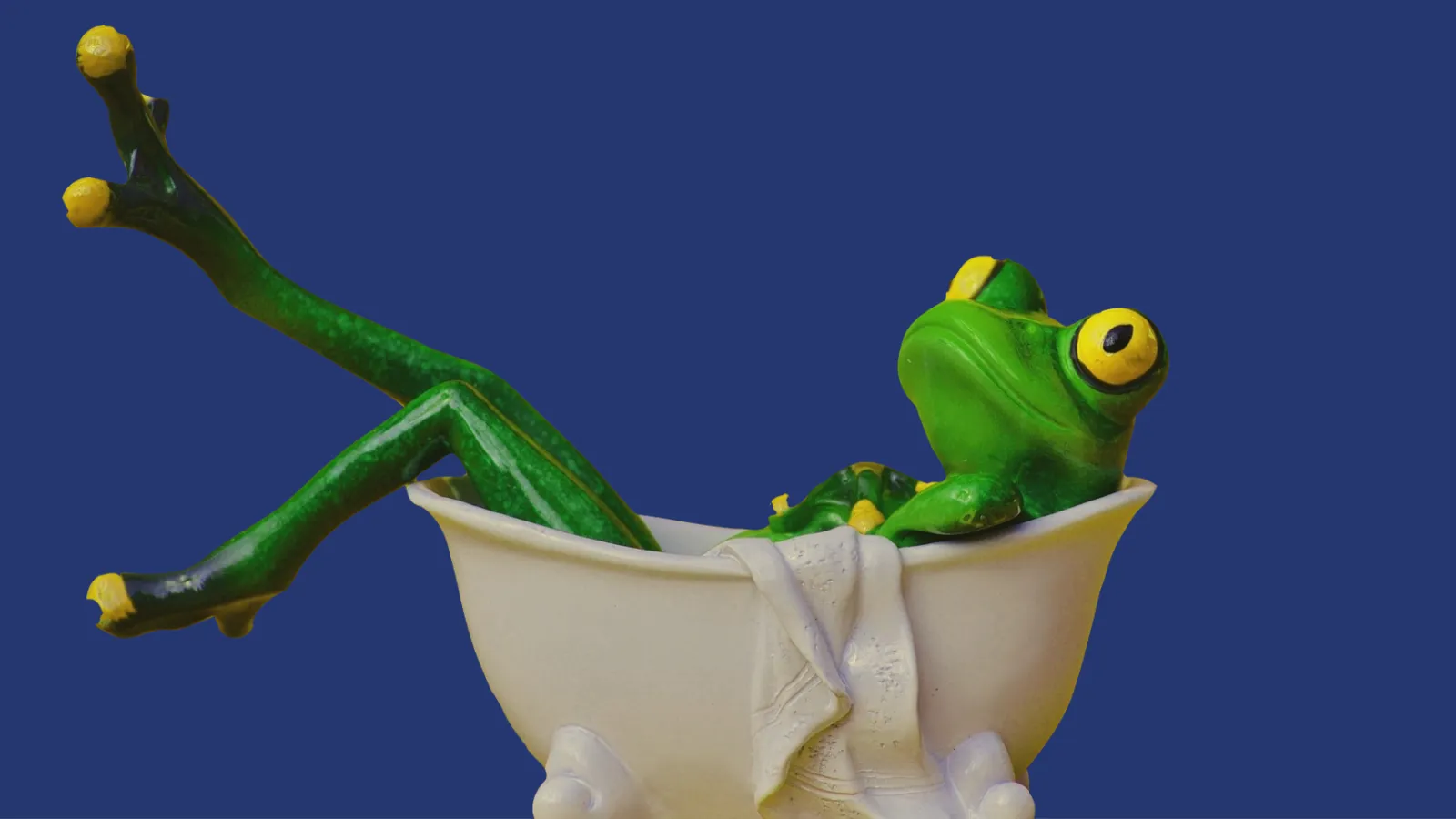Practicing good hygiene is an important part of athletic endeavors. Without taking proper care of yourself and your equipment, you run the risk of contracting a skin infection. Skin infections can range from viral to fungal to bacterial infections. All of them require medical attention and will cost you time away from athletic participation.

The most common form of viral skin infection
is herpes gladiatorum. This is one of the most infectious of the herpes-caused
diseases and is mostly contracted through skin to skin contact.
Herpes gladiatorum is caused by the herpes simplex virus and is often characterized by a cluster of fluid filled blisters that can appear up to a few weeks after initial contraction. Herpes viruses should be treated by oral antiviral medications prescribed by a physician that can be taken once a day while the infection is present or prophylactically every day to suppress future outbreaks.

Impetigo is the most common form of a bacterial skin infection among contact
athletes. Impetigo is classified by a sore that is sometimes fluid filled and
forms a honey colored scab. The sores may not be painful but are often itchy.
Touching or scratching sores may easily spread the infection. This skin
infection can be treated by either topical ointments or oral antibiotics that
need to be prescribed by a physician.
Dermatophytosis, more commonly known as ringworm, is a common fungal skin infection
that is often seen in athletics. Ringworm is characterized by raised red bumps
that are usually in circular form. This fungal infection thrives mostly in
environments that are warm, dark, and moist. Ringworm can be treated by an over
the counter steroidal cream and in severe cases, may need a prescription from a
physician.

Each of these types of skin infections can be prevented with just a few easy steps
- Always remember to shower with soap and water after activity
- Never share items such as soap, razors, or towels. Remember to wash towels regularly
- Wash hands regularly with soap and water
- Wear clean clothes each day for practice
- Practice and competition gear such as protective padding should be cleaned daily with a bleach wipe or other cleaning products
- Make sure you trim your nails to avoid cutting yourself or others
- Never pick or squeeze skin sores as the drainage may be infectious
All athletes with skin sores or lesions should
be referred to a physician for evaluation and possible treatment. These
individuals should not participate in practice or competition until the lesions
have healed or are no longer infectious and can be properly covered for
athletic participation. Remember to err on the side of precaution, if you are
unsure about how something looks, get it checked out!
About to Author:

